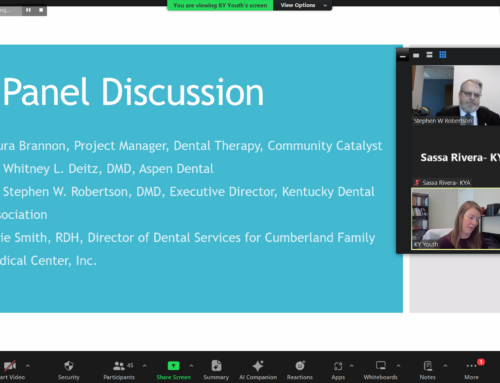 As Kentucky’s 2021 General Assembly kicks off this week, many policy items from KOHC’s policy agenda will be filed as bills for consideration. Among these priorities is expanding local control to allow city and county governments the option to regulate the use, display, sale, and distribution of tobacco products, including e-cigarettes. This policy will allow city and county governments to respond to their local needs and tailor their ordinances to these needs. City and county governments could take actions such as:
As Kentucky’s 2021 General Assembly kicks off this week, many policy items from KOHC’s policy agenda will be filed as bills for consideration. Among these priorities is expanding local control to allow city and county governments the option to regulate the use, display, sale, and distribution of tobacco products, including e-cigarettes. This policy will allow city and county governments to respond to their local needs and tailor their ordinances to these needs. City and county governments could take actions such as:
- Setting standards on tobacco retailer density in neighborhoods.
- Setting buffer zones between tobacco retailers and schools or playgrounds.
- Implementing other regulations related to the use, display, sale, and distribution of tobacco products for their community.
On Wednesday, January 6, two bills aiming to repeal tobacco preemption were announced during a press conference hosted by the Coalition for a Smoke Free Tomorrow. Senator Julie Raque Adams and Representative Kim Moser each filed a bill in their respective chambers. In addition, we heard from Dr. Withrow, director of community outreach from Baptist Health Paducah, about the impacts on health associated with smoking. Betsy Clemmons of the Hazard Perry Chamber of Commerce spoke about the high costs associated with the healthcare needs that result from smoking in Kentucky. Lastly, two youth from Western and Northern Kentucky spoke about the tobacco advertising tactics they see every day in their communities, and the impact this bill could have on reducing exposure to tobacco advertising among youth.
If passed, this policy will give city and county governments the opportunity to impact the health of their community in a positive way. Tobacco use is known to have negative impacts on the user’s overall health, including oral health. In fact, every year, smoking directly causes 8,900 deaths and leads to more than $1.9 billion in health care costs.
Additionally, this policy can help curb youth tobacco use, including e-cigarettes or vapes. Youth are more likely to smoke if they live or go to school in a neighborhood with high tobacco retailer density. Recent research shows that vaping can have negative impacts on the user’s oral health, as the impacts begin right when the toxins enter the mouth. Dentists have reported seeing younger patients developing gum disease and have concerns about the long-term effects of vaping on oral health.
You can follow House Bill 147 and Senate Bill 81 throughout the 2021 legislative session.





